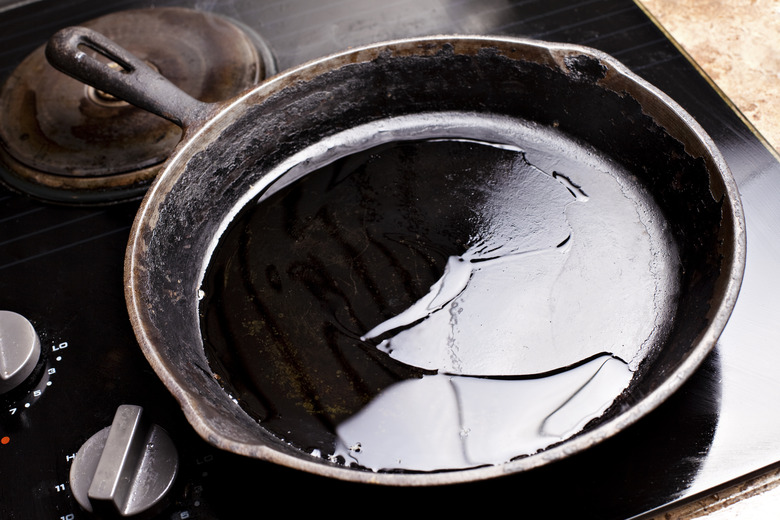Can You Pour Oil Down The Drain?
While it may be tempting to pour used cooking oil down the sink, it's not a good idea. Any kind of greasy, oily substance has the potential to clog the drain or cause serious problems for your neighborhood's sewer system. Save used oil in a container and either discard it in the trash or see if any agencies nearby accept used cooking oil for recycling into biodiesel fuel.
No Oil Down the Sink Drain
No Oil Down the Sink Drain
Whether frying foods or cooking a batch of bacon for breakfast, grease happens. A little bit of grease or oily residue is a common sight in a pan after cooking. While it's tempting to pour the oil down the drain or simply rinse the greasy pan out in the sink after a meal, this isn't good for the plumbing. A drop or two of oil down the drain once in a great while won't cause an issue, but it's better not to do this at all.
Grease problems don't happen overnight; it could take years to clog pipes or cause the sewers to back up, which can mean hefty repair bills. Even rinsing a pan out with soap to break the oily or greasy film down a bit can cause future plumbing issues. Over time, greases and fats bond with calcium within the wastewater system and create "fatbergs" that, much like they sound, can completely clog pipes. A multiple-ton fatberg cleared from the London sewer system was so big it was put on display in a museum.
Keep These Out of Drains
Keep These Out of Drains
Besides bacon grease, vegetable oil and other cooking oils, avoid putting any greasy, fatty or oily substances down the drain. Even salad dressing, coconut oil, peanut butter and mayonnaise should be kept out of the sink. Instead, wipe out pans or jars with a paper towel, then discard the paper towel in the trash. Other household oils and greasy substances, such as baby oil or petroleum jelly, should also not be poured into drains.
The garbage disposal is also no place for fats, greases and oils, as all the materials still end up in the sewer system eventually. This includes fat cut from meats, as well as poultry skins.
How to Discard Oils
How to Discard Oils
If you frequently cook with oil, as may be the case with a turkey fryer, save the lukewarm used oil in a container with a lid. If you've only used the oil once or twice, it may be reusable by straining it through a coffee filter and into a fresh, clean container. Don't reuse it if it smells rancid. Otherwise, keeping that used oil in a lidded container is still a good idea. Discard the full oil container in the trash or ask your local recycling company if they accept cooking oils and grease.
Small amounts of oil, such as what's left in a cooking pan, can be wiped out with a paper towel before the pan is placed in the dishwasher or washed in the sink.
Don't dispose of cooking oil in a garden or compost pile, either, as these fatty, smelly substances may attract vermin.
